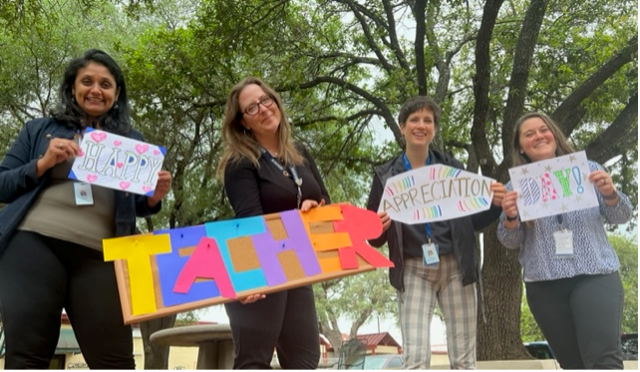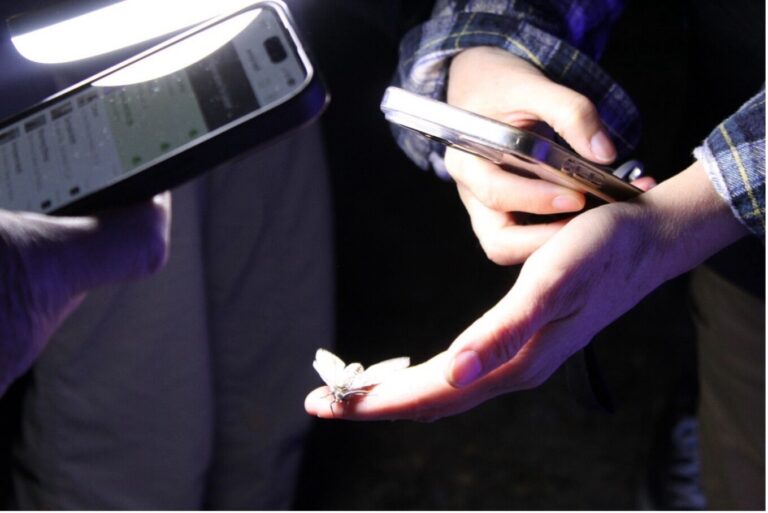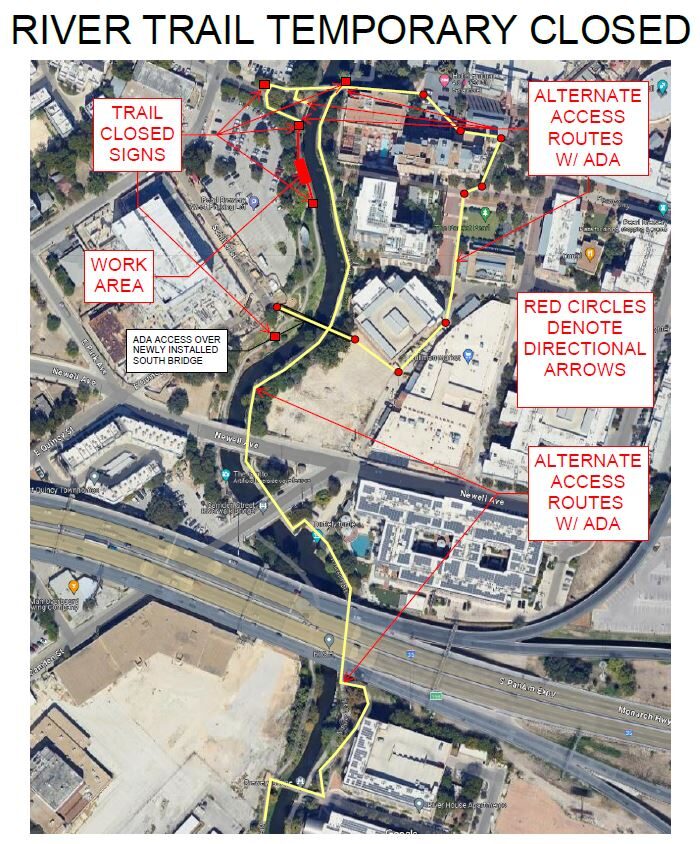Last Updated on January 30, 2024
A young girl eagerly raises her hand, attempting to stretch it higher than any other student in her 5th-grade classroom. With a sea of hands trying to do the same, the students’ anticipation of who will be called on to answer Education and Engagement Coordinator Janine Garcia’s question is an exciting moment. Janine believes that “there is no better feeling than interacting with students who genuinely care and are eager to learn about stewardship and sustainability. The root of their excitement stems from the passion and dedication of their teachers, who work tirelessly every day to create a better world.” In fact, the little-but-mighty team of environmental educators at the River Authority serves approximately 7,000 students across the San Antonio River Basin annually. This astounding number is achieved through the positive relationships fostered between the agency’s educators and classroom educators.
Ms. Witherell and her South San Antonio High School students pose for a riverside photo after an impromptu litter pickup.
The Education Team travels extensively throughout the watershed, from the northern edge of Bexar County to the riverside town of Goliad, to bring river-centric field trips with water quality topics into classrooms and local parks. Janine and fellow Education Coordinator Emily Rew see their positive influence on students and educators of all ages. “As a 5th-grade teacher, having the River Authority come to my school to teach my students about taking care of the San Antonio River is such a huge encouragement. The students learn so much information that helps them to understand how to be better stewards of our precious water supply and our Texas land,” said Kenedy Elementary School teacher Sharmin Perkins.
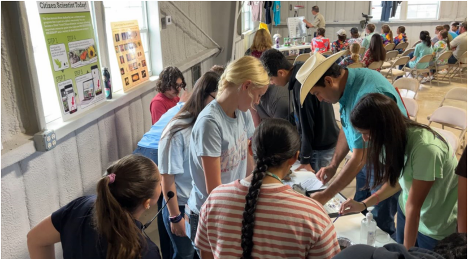
Karnes County students and teachers search for and identify live river critters at the Lonesome Dove Fest Youth Day.
Teachers often work closely with the River Authority to bring students to the banks of the San Antonio River for hands-on field experiences. These educational field trips offer water quality lessons, nature-based explorations, and science-themed games to uncover the influence of personal and collective choices on the San Antonio River and use scientific observation and data collection to do so. The team aims to give students the opportunity to get out in nature and participate in their community – which also helps build ownership of their landscape. Janine and Emily know that when their students see a great blue heron for the first time and understand that the food web which supports that bird is based on water quality, they feel more empowered to take care of the river. As part of a recent field trip, Emily asked students to role-play as watershed engineers and predict the stormwater runoff when land is developed into an impervious parking lot. She reflected on this experience: “When students see the drastic consequences of unintentional land development, I see light bulbs go off. They look at land use and impacts on water quality in a completely new and relevant way.”
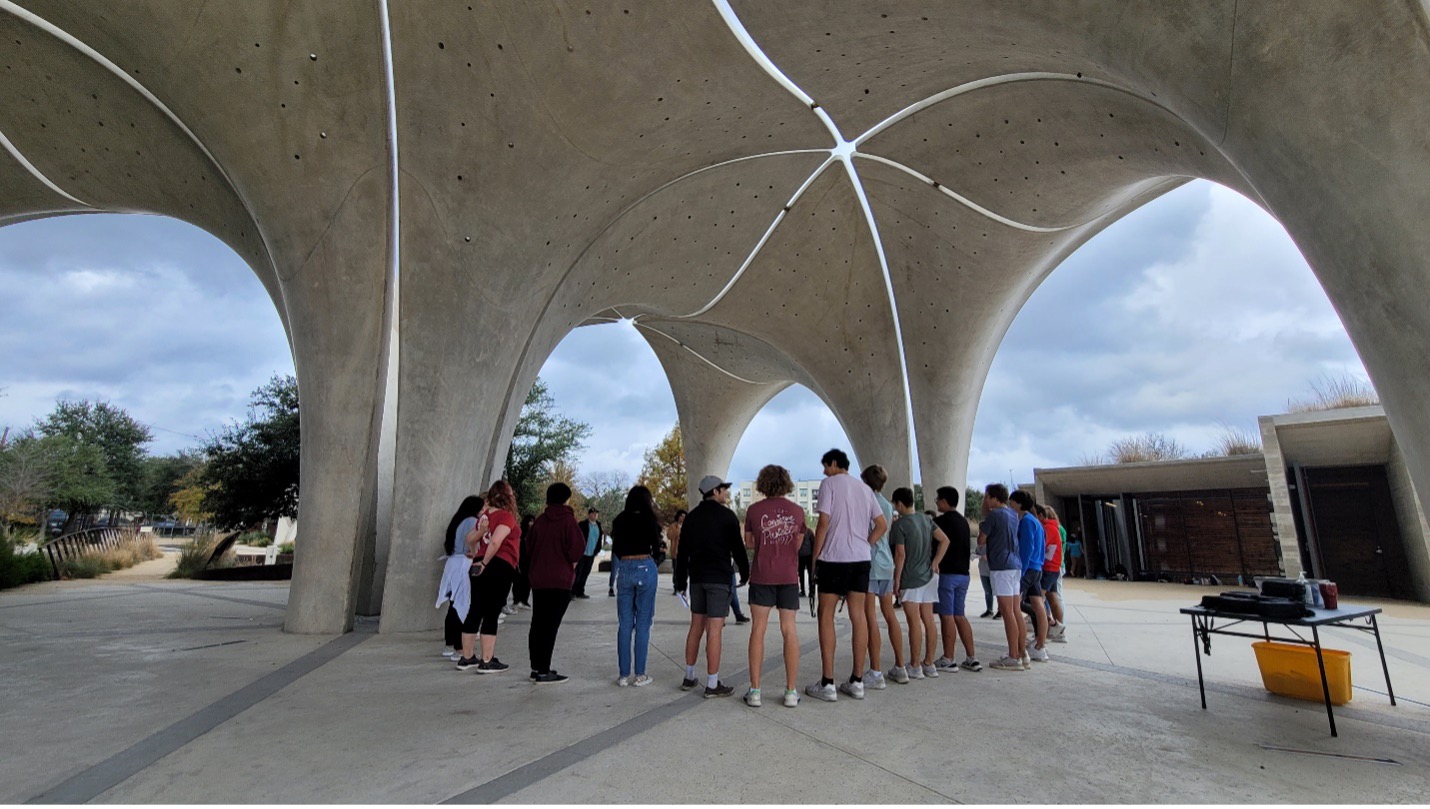
La Vernia High School students gather to kick off their field trip at Confluence Park.
Cheryl Hernandez, a teacher at the STEM Academy at Nimitz Middle School in San Antonio’s North East ISD, praised her school’s recent engineering-themed field trip experience: “. The trip was not only relevant to our STEM studies but also provided a hands-on learning opportunity that kept the students engaged throughout the day. The students were able to see first-hand the impact of natural disasters on our waterways and the importance of being prepared.”
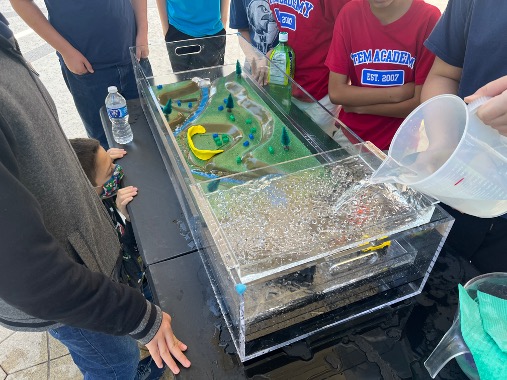
Students from the STEM Academy at Nimitz MS use a model to test their levee designs against a “rainstorm.”
One secret to the success of the agency’s education programs is that their educational practices are not a secret at all. The Education and Engagement Team shares its best practices with formal educators every summer in a series of professional development classes. Teachers can earn several State Board of Education-approved continuing professional education credits (CPEs) by attending these innovative courses. The workshops discuss the real-world applications of Science, Technology, Engineering, Art, and Math (STEAM) topics and careers at the River Authority.
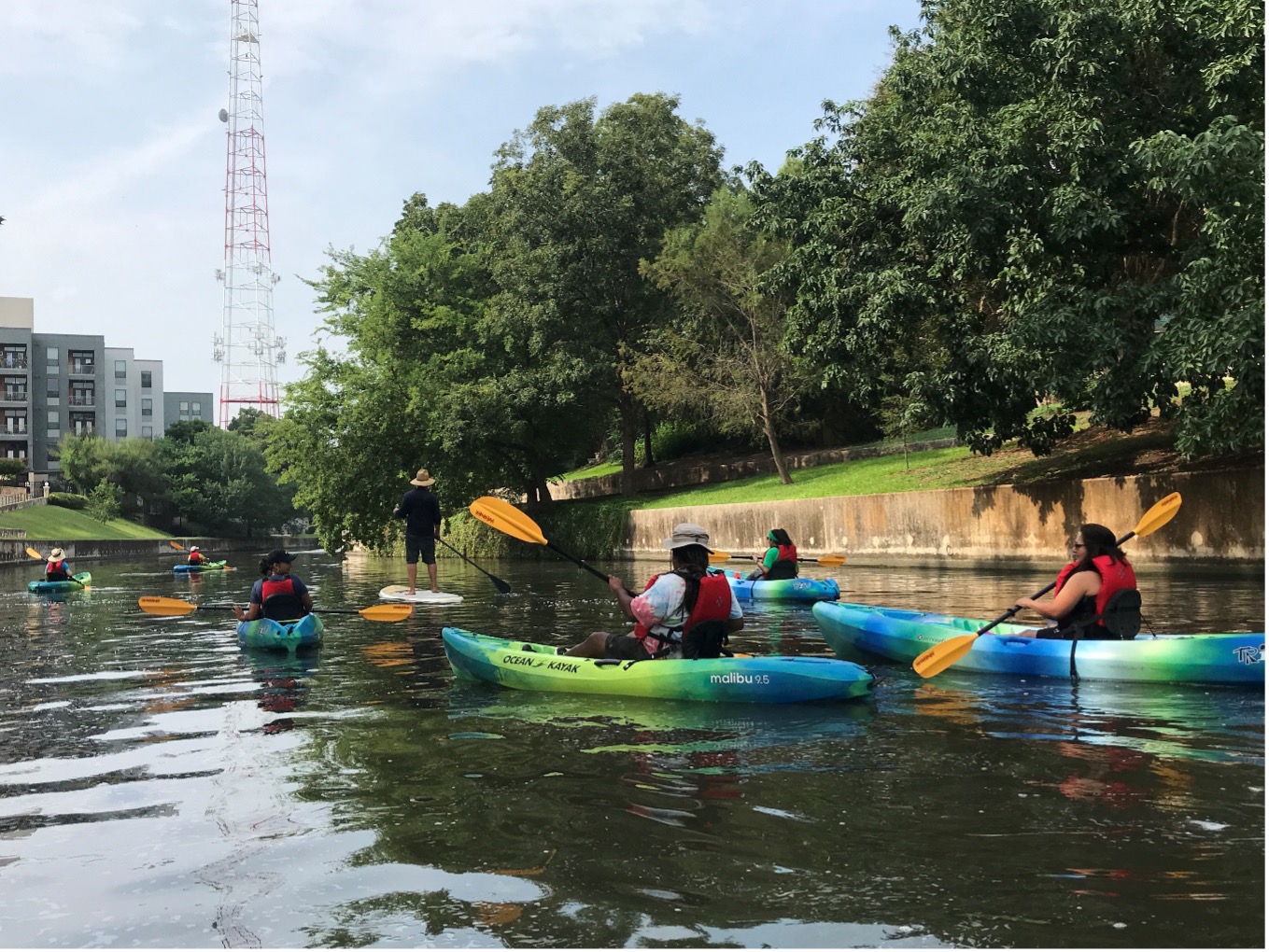
Educators paddle the San Antonio River during their River Stewardship professional development session.
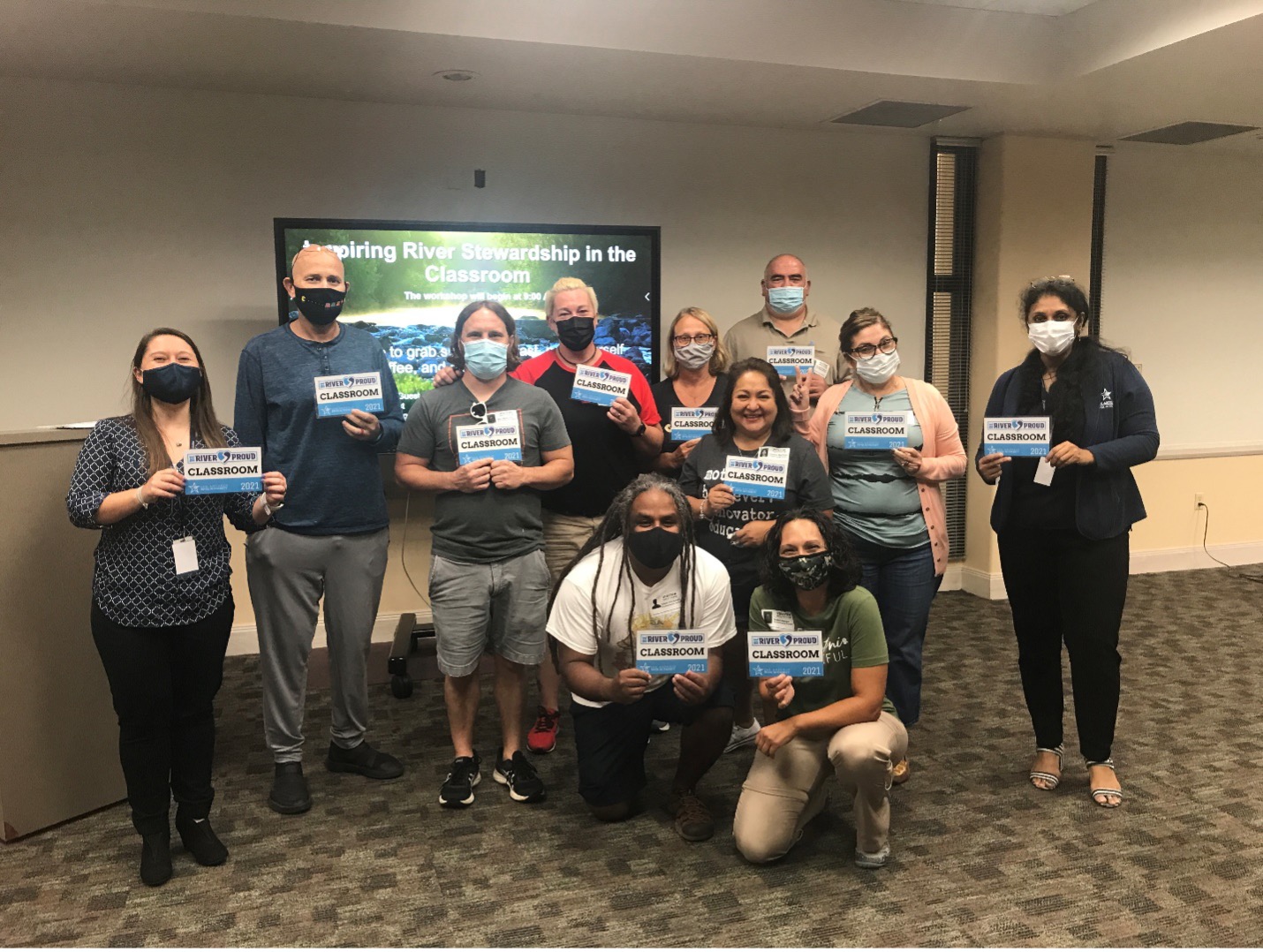
Educators pose with their Be River Proud classroom badges upon completing the “Inspiring River Stewardship in the Classroom” professional development session.
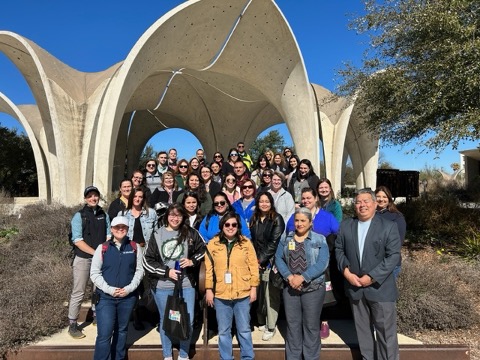
Teachers and leaders from Southwest ISD spent a morning learning about the River Authority’s partnership opportunities.
The team’s Education and Engagement Officer Carrie Merson shares, “Partnering with formal educators to develop young environmental leaders motivates me to help cast the River Authority’s education net even wider. Like that young 5th grader, my raised hand is part of a sea of educators’ hands that eagerly want to create a sustainable future for the San Antonio River and its community through young minds. Together, we help perpetuate the future partnerships that our students will create to inspire action for healthy creeks and rivers for all future generations.” Janine sums it up: “We greatly appreciate the hard work and devotion that the teachers of our watershed bring to their classrooms each day! They inspire us to continue working towards protecting and preserving our natural resources – one student at a time.”

